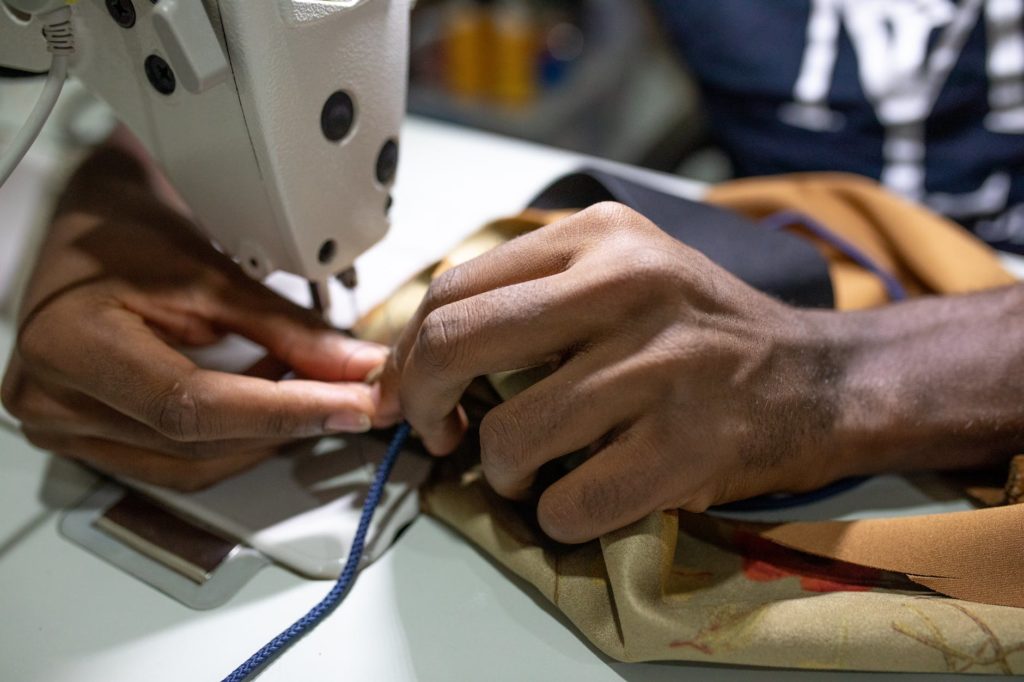
By Dr Christoph Biehl
Associate of the Lloyds Banking Group Centre for Responsible Business, Department of Management
The textile industry has been rocked by scandals for years. We still remember the pictures of families that were torn apart by the collapse of Rana Plaza in Bangladesh in 2013. Waves of empathy mixed with guilt spread across the world like the shock waves of the collapsing factory building.
Steps have been taken since. Investors have started to put pressure on the industry to improve labour standards in the factories. And various countries have started to introduce certification schemes based on more rigid standards, like the Green Button (Grüner Knopf) in Germany.
In the main, the issues with Rana Plaza were treated as a supply chain problem with contractors in low-income countries. But this changed rapidly in July, when a coronavirus outbreak was linked to garment manufacturers in Leicester. An environment of modern slavery was cited as a contributing factor and clear violations of the COVID-related health and safety rules.
A report in the Guardian newspaper found that ‘factories stayed open and forced staff to come in’. The online fashion retailer Boohoo, much of whose clothing is manufactured in such factories in Leicester, says on their website: ‘[our] philosophy’s pretty simple: we don’t take life, or fashion, too seriously’. So it seems.
But in Germany, another apparel company called Trigema has long-decided not to outsource their manufacturing or relocate operations overseas, but to keep producing in their own German factories. All its new product lines also follow the cradle to cradle approach of being 100% recyclable and based on organic materials.
Wolfgang Grupp, sole owner and CEO of Trigema, declares his company’s philosophy is that: ‘Our actions must not be solely guided by goals such as increased power and greater market share, but by solidarity, respect for all members of our community, justice and sustainability.’
The stark contrast to Boohoo’s philosophy shows that there is more to being a responsible business than ‘where’ you conduct your business. It seems that ‘how’ you conduct your business and the model it’s rooted in is key.
Trigema sees business as a part of a bigger system, the community, within which the company operates. If the overall system is in trouble the company is in trouble. So Trigema has a strong focus on fair wages, apprenticeships and development of its employees that ultimately benefit the local community.
For companies like Boohoo, on the other hand, the conditions of modern slavery in Leicester might have generated a short-term profit. But in the end, they led to a health crisis in the community and severe reputational damage for the firm. It demonstrates that there is no long-term benefit to the sub-system (the company) of irresponsibly exploiting the overall system (the community).
Any responsible business must have the welfare of communities at the core of its business model if it wants to avoid any Rana Plaza or Boohoo-type tragedies. Without it, a company’s operations are vulnerable to huge risks – no matter whether they’re in Bangladesh, the UK or Germany.
- Find out more about the Centre for Responsible Business.
- Find out more about Dr Christoph Biehl
- Back to Business School Blog
The views and opinions expressed in this article are those of the author and do not necessarily reflect the official policy or position of the University of Birmingham.
